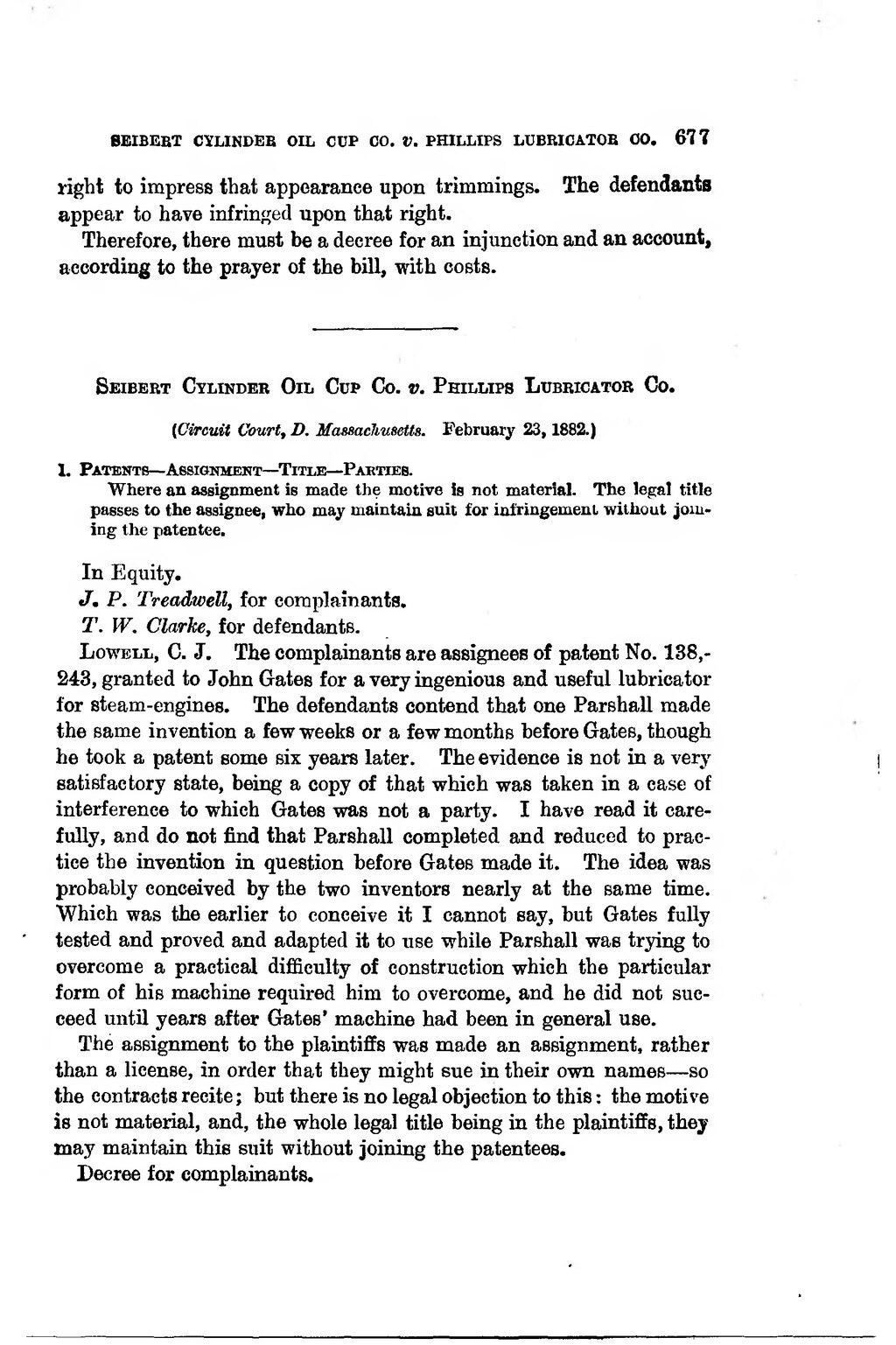BEIBEBT CYLINDBB OIL CUP CO. V. PHILLIPS LUBRICATOK 00. 677 �right to impress that appearance upon trimmings. The defendants appear to have infringed upon that right. �Therefore, there must be a decree for an injunction and an account, according to the prayer of the bill, with costs. ���Seibebt Cylinder Oil Cup Co. v. Phillips Lubricator Co. �(Circuit Court, D. Massachusett». February 23, 1882.) �1. Patents — Assionment— Title — Paktieb. �Where an assignment is made the motive ia not material. The legal title passes to the assignee, who may maintaiu suit for iut'ringemeni wiihout joiu- ing the patentee. �In Equity. �J, P. Treadwell, for complainanta. �i'. W. Olarke, for defendants. �LowELL, G. J. The complainants are assignees of patent No. 138,- 243, granted to John Gates for a very ingenions and useful lubricator for steam-engines. The defendants contend that one Parshall made the same invention a fe-wweeks or a fewmonths before Gates, though he took a patent some six years later. The evidence is not in a very satisfaetory state, being a copy of that which was taken in a case of interference to vrhich Gates was not a party. I have read it care- fully, and do not find that Parshall completed and redueed to prac- tice the invention in question before Gates made it. The idea was probably conceived by the two inventora nearly at the same time. "Which was the earlier to conceive it I cannot say, but Gates fully tested and proved and adapted it to use while Parshall was trying to overcome a practical difficulty of construction which the particular form of his machine required him to overcome, and he did not suc- ceed until years after Gates' machine had been in general use. �The assignment to the plaintiffs was made an assignment, rather than a iicense, in order that they might sue in their own names — so the contracts recite ; but there is no legal objection to this : the motive is not material, and, the whole legal title being in the plaintiffs, they may maintain this suit without joining the patentees. �Decree for complainants. ��� �
